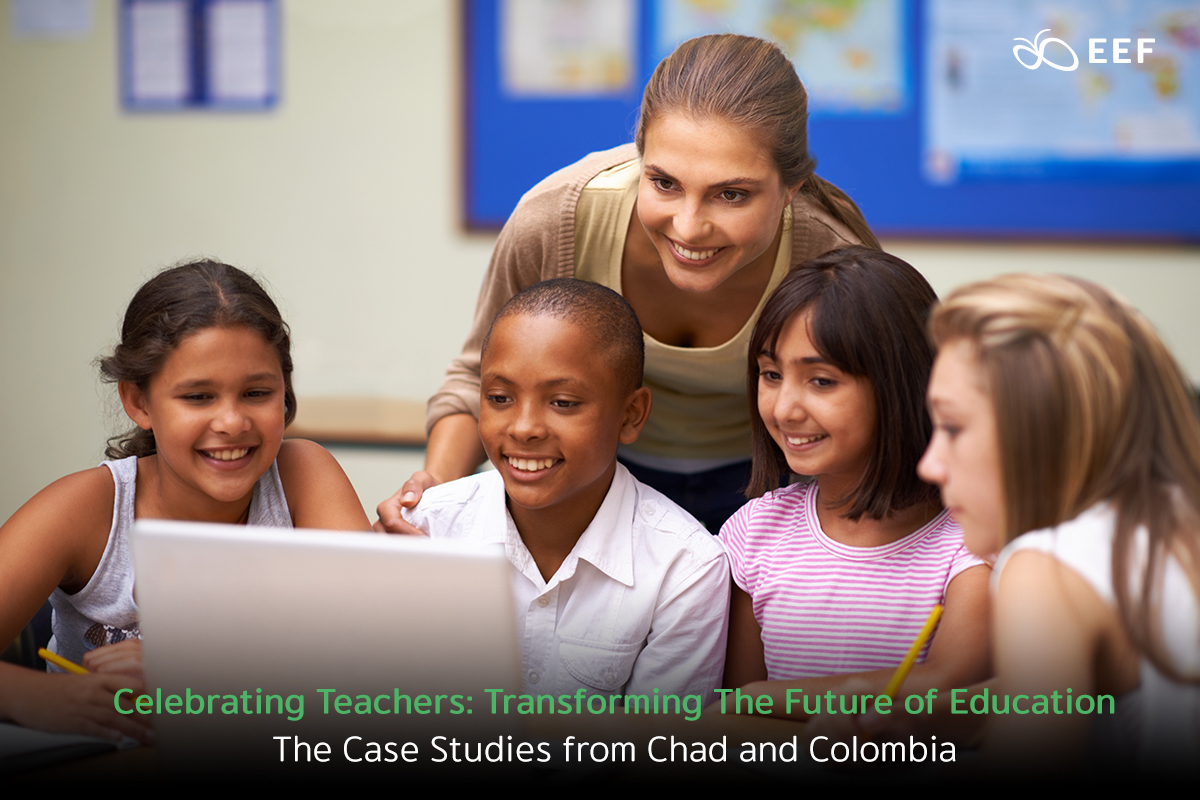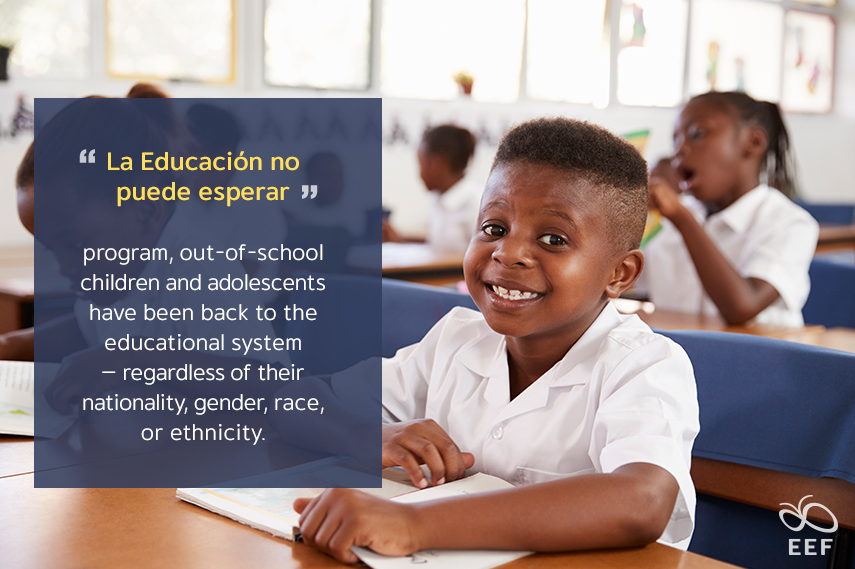
On October 5th, we celebrate World Teachers’ Day in acknowledgment of the impact teachers have on our children, our society, and our world. Through an act of keeping children in schools and shaping their futures, they offer hope in the face of crisis, stability during the chaos, and opportunity for a brighter future.
Unfortunately, inequitable disparities in recruitment and management policies, funding and salary payments, professional development opportunities, and mental health and psychosocial supports, just to name a few, all pose serious challenges to teachers working in emergencies and protracted crises, making them run the risk of leaving the profession. It is necessary to call on relevant stakeholders to fund innovative and transformative educational solutions so that teachers are truly at the core of these solutions — not only as instructors, but as producers, practitioners, and policy partners. For the transformation of education that begins with teachers, join us in celebrating teachers’ power to make a better world with these inspiring stories from Chad and Colombia.
Chad’s large population has been affected by internal displacement against the backdrop of forced migration, food insecurity, malnutrition, health emergencies, and climate change, among many other issues, which have been putting a significant strain on educational systems in North-Central Africa. As a result, the country now hosts half a million refugees from its neighboring countries. These challenges threaten continuity in school environments, thus teachers must always be prepared to respond to potential emergencies.

Gondjé School is no exception, hosting both refugee and host-community children who live around a remote refugee camp. Given the school’s rural setting, assistance is rarely around. In case of an emergency, teachers must be prepared for all eventualities. Thus, teachers at the school received training in emergency preparedness, disaster risk reduction, and risk management through the Conflicts/Disasters Risk Reduction approach powered by the “La Educación no puede esperar” (Education Cannot Wait) program, which is vital for the development of response plans in schools and helps them with their lesson planning. It is through making schools safer that access to learning in Chad is being improved.
Many children and adolescents in Colombia are out of school due to a lack of educational and hygienic facilities, particularly in rural areas, and the migration crisis, among many other detrimental effects of the COVID-19 pandemic, has made it impossible for thousands of them to start or resume their education in the country. These facilities are essential to both teacher and student well-being, and with safe learning environments, teachers can provide better instruction and impart health knowledge. In other words, only by enhancing them will it be possible to support teachers and lower the number of out-of-school children and adolescents in the country.

Thanks to the “La Educación no puede esperar” program, out-of-school children and adolescents have been brought back to the educational system — regardless of their nationality, gender, race, or ethnicity. The program improved classrooms and restrooms in educational institutions so that teachers can implement accelerated learning models that provide students with fundamentals of reading, writing, reasoning, and math. By providing new materials, desks, sinks, urinals, and water tanks for access to safe drinking water, teachers are better able to support their students. With this help, it is much easier to build the resilience of the refugee population in classrooms, allowing students to continue their education and have a more prosperous future.

It is worth mentioning that many refugee children sometimes come in the middle of the school year, being in urgent need of school materials and other resources. Given that education goes beyond traditional learning: creating a space where students can feel safe and adjust to new environments, and that it is education that can help fix inequalities, a priority must be to make sure students feel at home, have everything they need, so that they come out equipped with the tools to resolve situations at home, at work, and in any other places. And it is teachers who have a crucial role to play in making sure children and adolescents, whether they be refugees, migrants, or host-community, can have access to inclusive and equitable quality education, which is in line with the mission of the Equitable Education Fund (EEF) Thailand. EEF Thailand has several projects to support and develop in education areas such Teacher and School Quality Program (TSQP) which support the self-development of management quality and teaching technique for teachers. In addition, there is also HomeGrown Teacher Scholarship Program which provides educational opportunities for students in remote areas to be able to become new-generation teachers and return to develop their hometown schools. Last but not least Conditional Cash Transfer Programs are a technology that EEF (Thailand) developed and used to allocate student funds and poverty screening processes for all students who need financial support in education.

